Graham Reid | | 5 min read
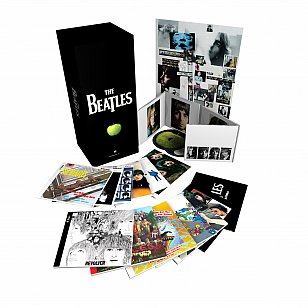
The story behind the extensive and long overdue remastering of the most important music catalogue in pop has been well canvassed. Indeed, I have written this, a Listener article, Getting Better based on my experience of listening through to a large sampling of tracks while in Abbey Road in June.
What that article doesn't address is the music itself.
From "I want to hold your hand" to "I'd love to turn you on" in a little over four years, the Beatles defined their decade --- although the Sixties as they exist in popular imagination only ran from '63 to late '68.
The early years of the Sixties belonged to harmless pop acts, the likes of Cliff Richard and -- in retrospect -- a lot of country music on mainstream radio. The darker Seventies arrived by '69 (not so coincidentally when the Beatles were breaking up).
What a re-surveying of these albums -- there are 14 in the remastered series which includes the hits collection Past Masters as a double disc -- affords is the chance again to enjoy the songs of innocence ('63 and '64) and experience ('65 to '69).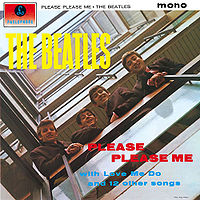
The music on that trilogy Please Please Me, With the Beatles and A Hard Day's Night perfectly encapsulated the thrilling internationalism of Beatlemania, of being young and the feeling of freedom the new age was promising: liberated from the shackles of the music of parents, the songs spoke of the excitement and pains of first loves, and they were (most often) delivered with a joyous enthusiasm.
And the Beatles plundered the music of others -- Motown, soul, Chet Atkins' country-rock, Little Richard, Buddy Holly, Elvis, more obscure figures like the great r'n'b soul-blues singer-songwriter Arthur Alexander -- and took it in new, guitar-driven directions. And of course they wrote their own material: marvellously uplifting songs like She Loves You and Can't Buy Me Love, more reflective things like Yes It Is and This Boy.
The second side of A Hard Day's Night - Lennon dominant and which starts with the crack of Any Time At All -- is a pure pop masterpiece, and none of the songs even made it into the movie or were singles.
Their B-sides (as Past Masters illustrates) shows how profligate they were with their genius.
For 18 months after that burst of creativity however -- through the Beatles For Sale and Help! albums -- they were creatively exhausted, worn out by touring and, although still cracking more great songs than most of their peers (the Kinks, Stones and Who being the notable exceptions), they started to sound like a band which was almost spent.
And on the cover of Beatles For Sale they just looked tired.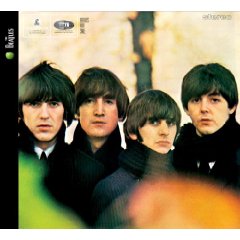
The resurrection began on Rubber Soul, an Essential Elsewhere album, which in retrospect was simply the doorway to the extraordinary Revolver.
And that in turn lead to the baroque masterpiece that was Sgt Pepper's which, although sounding rather more grandiose and grandiloquent today than it did at the time, comes back with new force thanks to the remastering.
As a friend said on listening to some of the remastered tracks like Lennon's For the Benefit of Mr Kite, it sounds like he's standing in front of band that is playing live.
Given that song was a studio construct of tape loops and orchestration that is a mighty, and accurate, compliment.
Listening back to this remarkable catalogue of over 230 songs, Yellow Submarine and Magical Mystery Tour remain what they were, "marking time" albums, although both contain some killer ands classic material, Lennon's Hey Bulldog on the former, I Am The Walrus on the latter obviously.
Their double album The Beatles aka The White Album, which brushes up in new and thrilling dimensions because of the remastering (start with Happiness is a Warm Gun or Helter Skelter for proof positive), has always been problematic: too much as George Martin still argues? Does it need editing back to a single album?
McCartney had an answer to that debate.
Abbey Road was the album that saw a return to form although Lennon wasn't of a mind to rate it. But given the direction he was going in, he would say that, wouldn't he?
Let It Be is what it is, the sad postscript to a remarkable career and a catalogue of songs that hasn't been equalled in pop.
And the Beatles, by definition because they were very popular, were a pop band: right to the end, even despite the embellishments on Pepper's, they were writing pop songs, those economically wee things with hooks and choruses. The stunning And Your Bird Can Sing -- which Lennon was inexplicably dismissive of -- off Revolver comes in at less than two minutes. It just seems longer because it is so crammed with ideas.
The divide between pop and rock in subsequent years -- and which sidelined great power pop bands like Big Star, the Shoes and Dwight Twilley if nothing else -- didn't exist in the Beatles' era.
Just listening back through this vast catalogue makes you realise just what a debt pop music owes them: they defined the concept of band as a gang of like-minded individuals against the world; and while they may have killed off jobbing songwriters they elevated the writer to status of the star. Neil Diamond once said if it hadn't been for the Beatles he would never have known what it felt like to stand on a stage and sing. He wasn't alone in that.
The Beatles also redefined the possibilities of the studio thanks to that rare relationship with George Martin and Abbey Road; they increasingly made personal and political comments part of the contract; they included coded lyrics just because they could ("finger pies"); Lennon invited the surrealists and arty types to the party (I Am the Walrus) and McCartney never denied the history of British music they were tapping (Your Mother Should Know, When I'm 64).
They wrote remarkably few hippie-dippie lyrics in that sometimes addled era, had songs of throwaway humour (You Know My Name) and weren't embarrassed by kiddie fodder songs like Yellow Submarine or All Together Now.
So what else does this remastering tell us?
First that Ringo Starr was an exceptional drummer. He here comes through with greater clarity and, according to studio engineer Allen Rouse whom I spoke to in Abbey Road, Ringo loved the revisited Let It Be Naked because "at last you can hear the bloody drums".
You can hear them everywhere on these remasters, as you can those harmony vocals; Lennon's often wilfully nasal flatness; Harrison's precision guitar playing so grounded in country music until the marvellous Rubber Soul (an Essential Elsewhere album); McCartney's fluid bass playing which seemed to arrive suddenly around the time of Ticket to Ride and Rain yet was there right from the start in I Saw Her Standing There . . .
And much more.
This music was always exceptional now, at last, it sounds it.


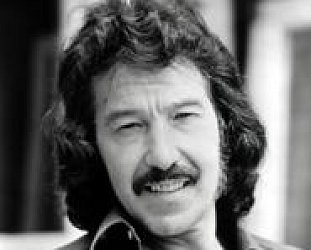
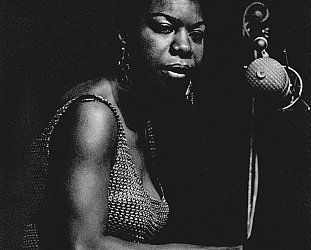



post a comment